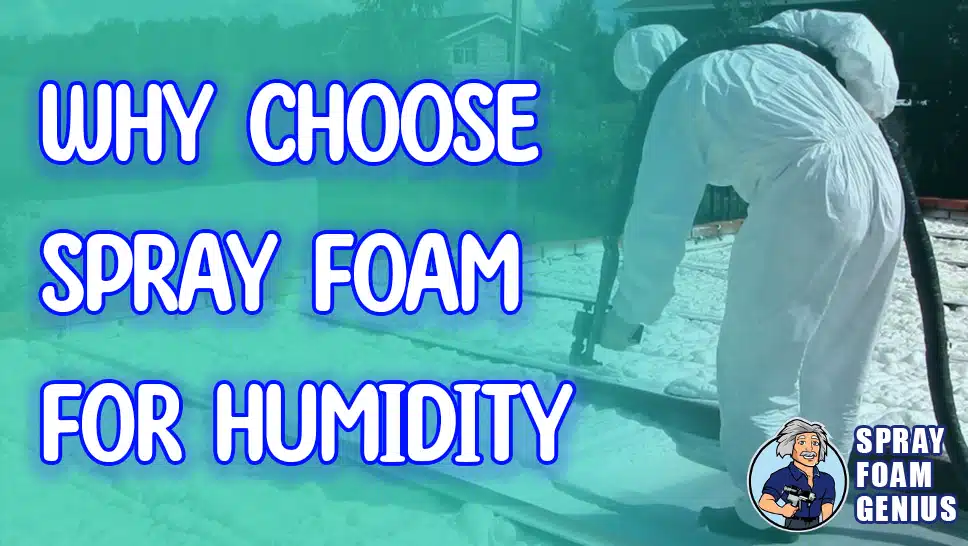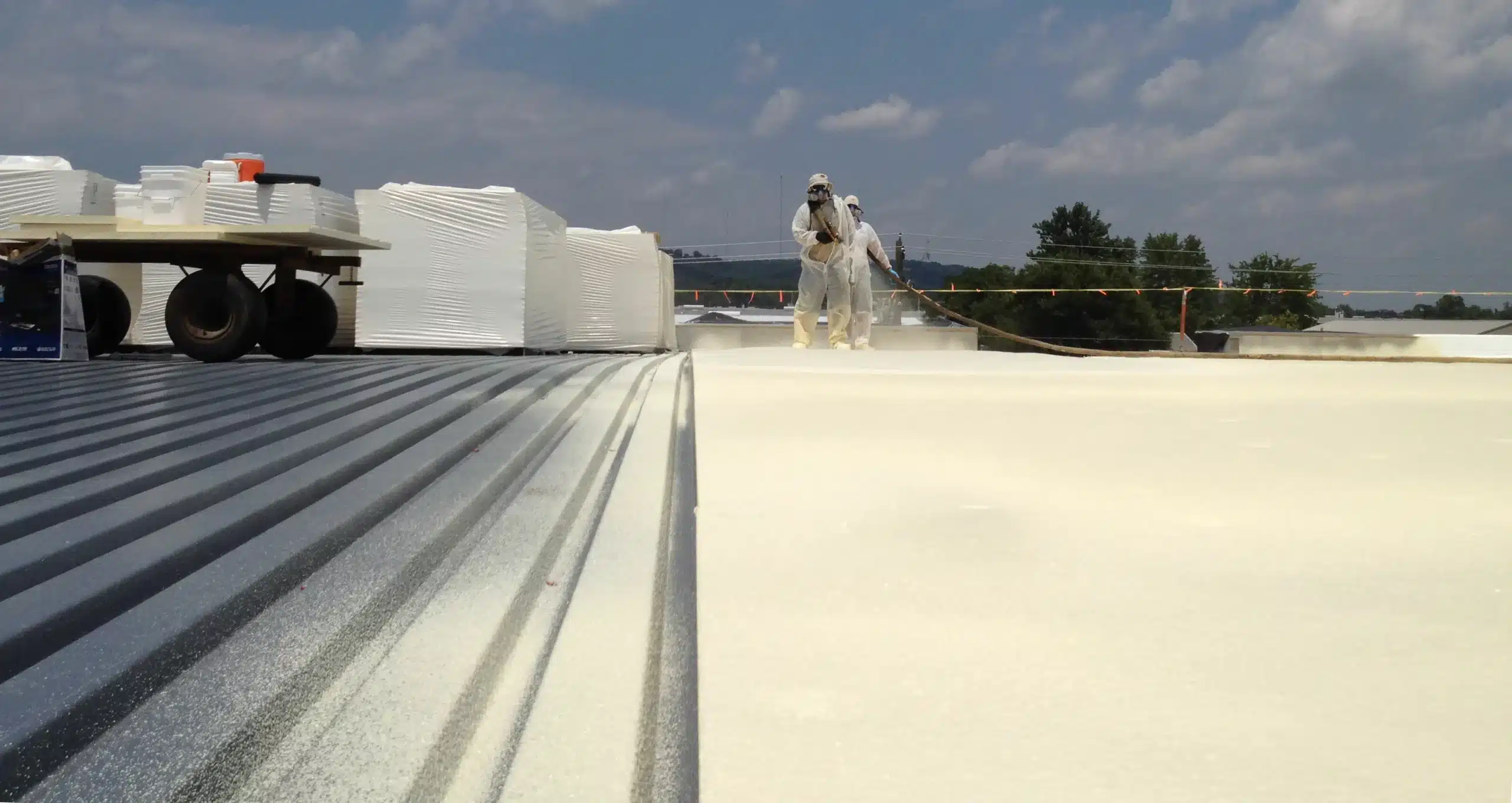
When it comes to choosing insulation for high-humidity areas, spray foam insulation stands out as the top choice. Whether you reside in a region with consistently high moisture levels or face seasonal humidity challenges, understanding why spray foam insulation is particularly effective in these environments is crucial. In this comprehensive guide, we will explore the benefits of spray foam insulation, address common concerns, and explain why it is the optimal solution for high-humidity areas.
What is Spray Foam Insulation?
Spray foam insulation is a type of insulation material that is applied as a liquid and expands into a foam when it comes into contact with air. This process creates a seamless and airtight barrier that is highly effective in insulating buildings and controlling moisture. The two primary types of spray foam insulation are:
- Open-Cell Spray Foam: Characterized by its softer, more flexible structure, open-cell spray foam is ideal for areas where soundproofing and thermal insulation are important. It is less dense and has a higher expansion rate, making it effective for filling gaps and cavities.
- Closed-Cell Spray Foam: Known for its rigid and dense composition, closed-cell spray foam provides superior thermal insulation and moisture resistance. It is an excellent choice for high-humidity areas due to its low permeability and high insulating value.
The Importance of Insulation in High-Humidity Areas
High-humidity environments present unique challenges for insulation. Excess moisture can lead to a range of issues, including:
- Mold Growth: Excess moisture can create the perfect breeding ground for mold and mildew, which can damage building materials and negatively impact indoor air quality.
- Wood Rot: Prolonged exposure to moisture can cause wood framing and other structural elements to deteriorate over time.
- Energy Inefficiency: Poor insulation in high-humidity areas can lead to increased energy consumption as heating and cooling systems work harder to maintain comfortable indoor temperatures.
Why Spray Foam Insulation is Ideal for High-Humidity Areas
1. Superior Moisture Resistance
One of the primary advantages of spray foam insulation, especially closed-cell spray foam, is its exceptional resistance to moisture. Unlike traditional insulation materials such as fiberglass or cellulose, spray foam creates a continuous barrier that effectively blocks water vapor. This characteristic helps prevent moisture infiltration and condensation within walls, ceilings, and floors.
2. Air Tightness and Energy Efficiency
Spray foam insulation expands upon application, filling all gaps and cracks in the building envelope. This expansion creates an airtight seal that significantly reduces air leaks. By minimizing air infiltration, spray foam insulation helps maintain consistent indoor temperatures and improves energy efficiency. In high-humidity areas, this means your HVAC system will operate more efficiently, leading to lower energy bills.
3. Mold and Mildew Prevention
The closed-cell structure of spray foam insulation inhibits the growth of mold and mildew. Because it does not absorb moisture, spray foam prevents the accumulation of dampness that can lead to mold development. This is particularly beneficial in high-humidity areas where traditional insulation materials might be more prone to mold issues.
4. Enhanced Structural Integrity
Spray foam insulation adds strength to the building’s structure by adhering to surfaces and reinforcing walls. This added rigidity can help prevent damage caused by moisture-related issues such as wood rot or sagging. In high-humidity environments, maintaining the structural integrity of your home is crucial to avoid costly repairs and ensure long-term durability.
5. Improved Indoor Air Quality
By creating an airtight seal, spray foam insulation helps reduce the infiltration of outdoor pollutants and allergens. This contributes to improved indoor air quality, which is especially important in high-humidity areas where excess moisture can exacerbate respiratory issues and allergies.
Installation Considerations for Spray Foam Insulation
While spray foam insulation offers numerous benefits, proper installation is key to achieving optimal performance. Here are some important factors to consider:
1. Professional Application
For the best results, spray foam insulation should be applied by a professional with experience in handling and installing the material. Improper application can lead to issues such as incomplete coverage, uneven expansion, and potential safety hazards.
2. Ventilation
During the installation process, it is essential to ensure adequate ventilation to allow the spray foam to cure properly and to minimize exposure to any fumes. Proper ventilation also helps maintain indoor air quality during and after installation.
3. Inspection and Maintenance
Regular inspection of spray foam insulation is important to ensure its continued effectiveness. While spray foam is highly durable, periodic checks can help identify any potential issues, such as damage or wear, and address them promptly.
Real-World Examples of Spray Foam Insulation in High-Humidity Areas

Spray foam insulation has been successfully used in a variety of high-humidity environments. Here are a few examples:
- Coastal Areas: Homes and buildings located near the coast are often exposed to high levels of humidity and salt air. Spray foam insulation provides a robust defense against moisture and helps protect the building’s integrity in these challenging conditions.
- Basements and Crawl Spaces: Many basements and crawl spaces are prone to dampness and moisture-related issues. Spray foam insulation can be particularly effective in these areas, providing a barrier against moisture and improving overall insulation.
- Commercial Buildings: In commercial settings such as warehouses or retail spaces located in humid climates, spray foam insulation enhances energy efficiency and protects against moisture-related damage.
The Benefits of Spray Foam Insulation in Detail
1. Long-Term Cost Savings
Investing in spray foam insulation may have a higher initial cost compared to traditional insulation materials, but the long-term savings are significant. By improving energy efficiency and reducing the need for repairs related to moisture damage, spray foam insulation can lead to substantial cost savings over time. Lower energy bills and reduced maintenance expenses make it a cost-effective choice for homeowners and business owners alike.
2. Versatility
Spray foam insulation is versatile and can be used in various applications, including attics, walls, ceilings, and floors. Its ability to expand and conform to different shapes makes it suitable for both new constructions and retrofit projects. Whether you are building a new home or renovating an existing structure, spray foam insulation can be adapted to meet your specific needs.
3. Environmental Impact
Spray foam insulation contributes to environmental sustainability by improving energy efficiency and reducing the carbon footprint of buildings. By minimizing the energy required to heat and cool indoor spaces, spray foam insulation helps lower greenhouse gas emissions. Additionally, many spray foam products are made with eco-friendly materials and have low global warming potential.
How to Choose the Right Spray Foam Insulation Contractor
Selecting a qualified spray foam insulation contractor is crucial to ensure that the installation is done correctly and efficiently. Here are some tips for choosing the right professional:
1. Experience and Expertise
Look for contractors with extensive experience in spray foam insulation. They should be knowledgeable about different types of spray foam products and have a proven track record of successful installations in high-humidity areas.
2. Certifications and Licensing
Ensure that the contractor holds the necessary certifications and licenses required for spray foam insulation. These credentials indicate that they have met industry standards and are qualified to perform the work.
3. References and Reviews
Check references and read customer reviews to gauge the contractor’s reputation and reliability. Positive feedback from previous clients can provide reassurance that you are choosing a reputable professional.
4. Detailed Quotes
Obtain detailed quotes from multiple contractors to compare costs and services. A comprehensive quote should include all aspects of the project, including materials, labor, and any additional fees.
Making the Switch to Spray Foam Insulation
If you are considering upgrading your insulation to spray foam, now is the perfect time to explore your options. Our team at Spray Foam Genius Marketing specializes in helping spray foam insulation contractors connect with customers seeking high-quality insulation solutions. Whether you are a homeowner or a business owner, we can assist you in finding the right contractor to meet your needs.
For more information about spray foam insulation and to get in touch with qualified contractors in your area,Call us at 877-840-FOAM for USA and 844-741-FOAM for Canada visit our website at sprayfoamgeniusmarketing.com, or email us at [email protected] to get started.
We are here to provide expert guidance and support for all your spray foam insulation needs.
- 5 Google My Business Hacks to Double Your Leads for Spray Foam Insulation Contractors - January 14, 2025
- Why Spray Foam Contractors Cannot Ignore Reputation Management in 2025 - January 13, 2025
- Local SEO Secrets Every Spray Foam Contractor Must Know to Win in 2025 - January 13, 2025

